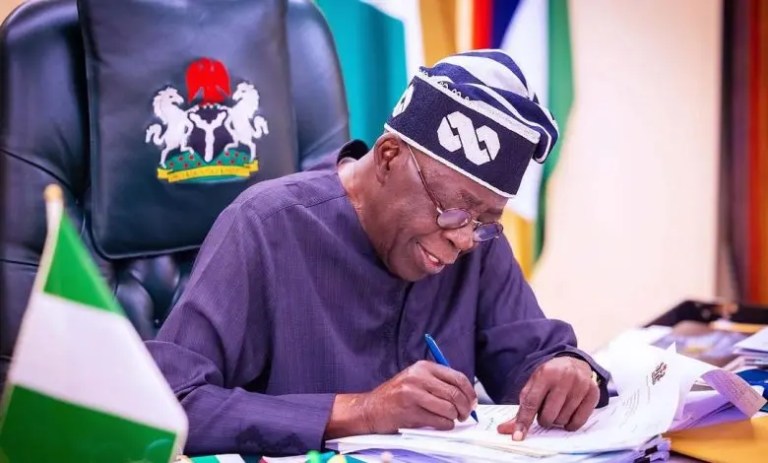President Bola Tinubu will launch the Student Loan Scheme on Thursday, March 14, 2024.
The Special Adviser to the President on Media and Publicity, Mr Ajuri Ngelale, said this on Sunday during TVC’s Politics on Sunday monitored by our correspondent.
On the programme titled ‘Counting the Cost of Presidents Tinubu’s Reforms,’ Ngelale highlighted some of the President’s welfare initiatives being implemented at the moment, saying, “Later this week, on Thursday, the President will launch the historic National Student Loan Programme.”
“This is a major form of obligation reduction for Nigerians and families and young people at a time when Nigerians are feeling the pinch. We believe this is the way to go,” he added.
Tinubu had on June 12, 2023, signed the Access to Higher Education Act, 2023, into law to enable indigent students to access interest-free loans for their educational pursuits in any Nigerian tertiary institution.
The move was in “fulfillment of one of his campaign promises to liberalise funding of education,” a member of the then Presidential Strategy Team, Dele Alake, said.
The Act, popularly known as the Students Loan Law, also established the Nigerian Education Loan Fund, which is expected to handle all loan requests, grants, disbursement, and recovery.
The government initially said it would take effect in September, but it did not. It later shifted the take-off to January but that also did not happen.
The President proposed N50bn for its take-off in the 2024 budget he presented to the National Assembly last November.
On February 7, the Executive Secretary of the Nigeria Education Loan Fund, Dr Akintunde Sawyerr, exclusively confirmed to our correspondent that the much-awaited scheme would go live on February 21, when President Tinubu launches it at the State House, Abuja.
However, the launch was delayed, with Sawyerr, alongside Presidency sources, explaining that the lag time was to enable the fund to expand its mandate to include students seeking loans for skills development, as directed by the President.
After receiving a briefing from the NELFUND team led by the Minister of State for Education, Dr Yusuf Sununu, on January 22, the President directed the fund to extend interest-free loans to Nigerian students interested in skill-development programmes.
Tinubu based his decision on the need for the scheme to accommodate those who may not want to pursue a university education, noting that skill acquisition is as essential as obtaining undergraduate and graduate academic qualifications.
“This is not an exclusive programme. It is catering to all of our young people. Young Nigerians are gifted in different areas,” he said.
Linking this directive to the delay, the President’s Special Adviser on Information and Strategy, Mr Bayo Onanuga had told The PUNCH, “Don’t forget that the last time they met, the President asked them to go and expand their mandate to include those who want to learn vocational skills. That could be the reason why the whole thing was delayed; they had to increase the scope.”
On Saturday, Sawyerr also told our correspondent that the delay was due to unperfected backend systems to power the application process as the scheme is “entirely technologically driven.”
He said, “The delay in take-off was basically to enable the agency to put all necessary measures in place as the scheme is entirely technologically driven.”
Meanwhile, members of the Nigerian community in West Yorkshire, United Kingdom have called for the inclusion of students studying abroad in the student loan scheme.
Representing the community members in a meeting with the acting Nigerian High Commissioner to the United Kingdom, Cyprian Heen, on Saturday, Tunmise Ajiboye urged him to advocate the inclusion of students in foreign countries in the government’s loan scheme.
In a statement on Sunday by Ajiboye, he noted that enabling students abroad to participate in the loan scheme would contribute to improving access to higher education for Nigerians studying overseas.
He also urged the government to provide support for students regarding exchange rates and foreign exchange, ensuring that they have access to favourable rates and assistance in managing their financial needs.
END.

